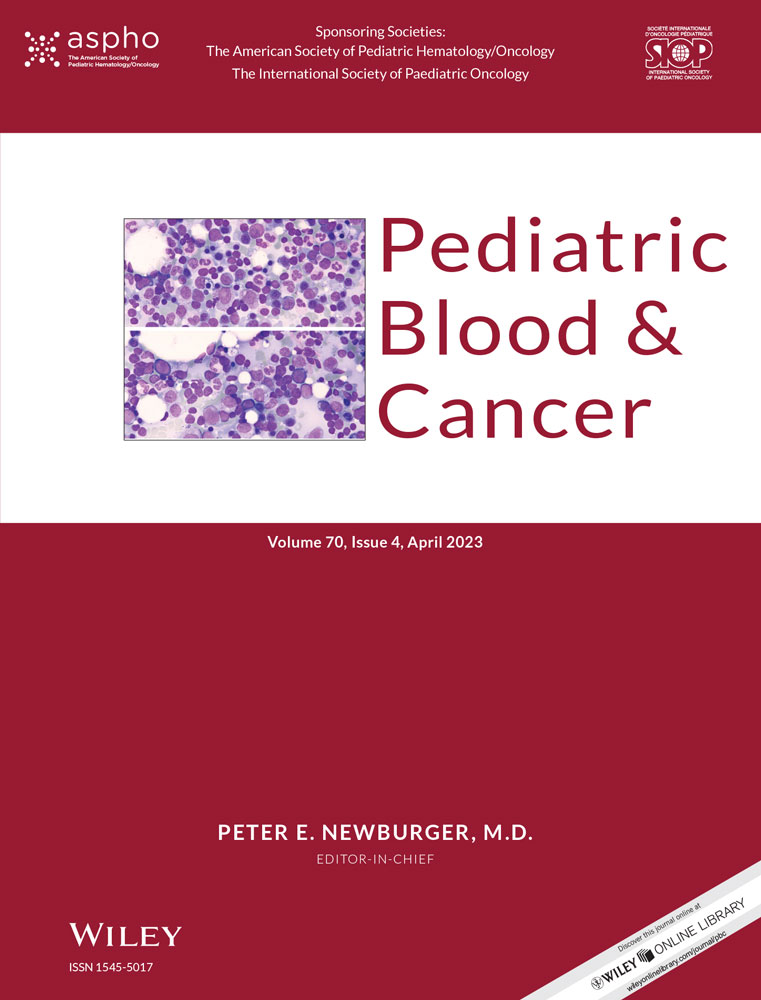Primary care providers’ comfort in caring for cancer survivors: Implications for risk-stratified care
Corresponding Author
Larissa Nekhlyudov
Department of Medicine, Brigham and Women's Hospital, Boston, Massachusetts, USA
Medical Oncology, Dana-Farber Cancer Institute, Boston, Massachusetts, USA
Correspondence
Larissa Nekhlyudov, Brigham and Women's Hospital Primary Care Associates, 800 Huntington Ave, 6th Floor, Boston, MA 02115, USA.
Email: [email protected]
Search for more papers by this authorCraig Snow
Medical Oncology, Dana-Farber Cancer Institute, Boston, Massachusetts, USA
Search for more papers by this authorLauren P. Knelson
Medical Oncology, Dana-Farber Cancer Institute, Boston, Massachusetts, USA
Search for more papers by this authorKate E. Dibble
Medical Oncology, Dana-Farber Cancer Institute, Boston, Massachusetts, USA
Search for more papers by this authorCatherine M. Alfano
Cancer Care Management and Research, Northwell Health Cancer Institute, New York, New York, USA
Search for more papers by this authorAnn H. Partridge
Medical Oncology, Dana-Farber Cancer Institute, Boston, Massachusetts, USA
Search for more papers by this authorCorresponding Author
Larissa Nekhlyudov
Department of Medicine, Brigham and Women's Hospital, Boston, Massachusetts, USA
Medical Oncology, Dana-Farber Cancer Institute, Boston, Massachusetts, USA
Correspondence
Larissa Nekhlyudov, Brigham and Women's Hospital Primary Care Associates, 800 Huntington Ave, 6th Floor, Boston, MA 02115, USA.
Email: [email protected]
Search for more papers by this authorCraig Snow
Medical Oncology, Dana-Farber Cancer Institute, Boston, Massachusetts, USA
Search for more papers by this authorLauren P. Knelson
Medical Oncology, Dana-Farber Cancer Institute, Boston, Massachusetts, USA
Search for more papers by this authorKate E. Dibble
Medical Oncology, Dana-Farber Cancer Institute, Boston, Massachusetts, USA
Search for more papers by this authorCatherine M. Alfano
Cancer Care Management and Research, Northwell Health Cancer Institute, New York, New York, USA
Search for more papers by this authorAnn H. Partridge
Medical Oncology, Dana-Farber Cancer Institute, Boston, Massachusetts, USA
Search for more papers by this authorAbstract
Personalized, risk-stratified care aims to “right size” the involvement of primary care providers (PCPs), oncology and specialized practitioners in caring for cancer survivors. Our survey found limited comfort among PCPs in cancer surveillance and management of treatment-related effects. In hypothetical case scenarios, PCPs reported least comfort in caring for a survivor of childhood cancer, followed by young adult-onset cancer, and greater comfort in caring for a survivor of adult-onset breast cancer. While education and training of PCPs is essential, risk-stratification strategies need to identify patients who may transition to primary care and those who may require ongoing survivorship-focused follow-up.
Supporting Information
| Filename | Description |
|---|---|
| pbc30174-sup-0001-Appendix.docx13.7 KB | Appendix |
Please note: The publisher is not responsible for the content or functionality of any supporting information supplied by the authors. Any queries (other than missing content) should be directed to the corresponding author for the article.
REFERENCES
- 1Miller KD, Nogueira L, Devasia T, et al. Cancer treatment and survivorship statistics, 2022. CA Cancer J Clin. 2022; 72: 409-436. doi:10.3322/caac.21731
- 2Bluethmann SM, Mariotto AB, Rowland JH. Anticipating the “silver tsunami”: prevalence trajectories and comorbidity burden among older cancer survivors in the United States. Cancer Epidemiol Biomarkers Prev. 2016; 25(7): 1029-1036. doi:10.1158/1055-9965.EPI-16-0133
- 3Dixon SB, Chow EJ, Hjorth L, et al. The future of childhood cancer survivorship: challenges and opportunities for continued progress. Pediatr Clin North Am. 2020; 67(6): 1237-1251. doi:10.1016/j.pcl.2020.07.013
- 4Galán S, de la Vega R, Miró J. Needs of adolescents and young adults after cancer treatment: a systematic review. Eur J Cancer Care (Engl). 2018; 27(6):e12558. doi:10.1111/ecc.12558
- 5Smith L, Glaser AW, Greenwood DC, Feltbower RG. Cumulative burden of subsequent neoplasms, cardiovascular and respiratory morbidity in young people surviving cancer. Cancer Epidemiol. 2020; 66:101711. doi:10.1016/j.canep.2020.101711
- 6Alfano CM, Mayer DK, Bhatia S, et al. Implementing personalized pathways for cancer follow-up care in the United States: proceedings from an American Cancer Society-American Society of Clinical Oncology summit. CA Cancer J Clin. 2019; 69(3): 234-247. doi:10.3322/caac.21558
- 7Mayer DK, Alfano CM. Personalized risk-stratified cancer follow-up care: its potential for healthier survivors, happier clinicians, and lower costs. J Natl Cancer Inst. 2019; 111(5): 442-448. doi:10.1093/jnci/djy232
- 8Alfano CM, Jefford M, Maher J, Birken SA, Mayer DK. Building personalized cancer follow-up care pathways in the United States: lessons learned from implementation in England, Northern Ireland, and Australia. Am Soc Clin Oncol Educ Book. 2019; 39: 625-639. doi:10.1200/EDBK_238267
- 9 National Cancer Institute Notice of Special Interest: tailoring follow-up care for survivors using risk-stratified pathways. NIH. Accessed November 13, 2022. https://grants.nih.gov/grants/guide/notice-files/NOT-CA-21-019.html
- 10 Living With and Beyond Cancer. Implementing personalized stratified care pathways. NHS England. Accessed November 13, 2022. https://www.england.nhs.uk/wp-content/uploads/2020/04/cancer-stratified-follow-up-handbook-v1-march-2020.pdf
- 11Crabtree BF, Miller WL, Howard J, et al. Cancer survivorship care roles for primary care physicians. Ann Fam Med. 2020; 18(3): 202-209. doi:10.1370/afm.2498
- 12Geramita EM, Parker IR, Brufsky JW, Diergaarde B, van Londen GJ. Primary care providers' knowledge, attitudes, beliefs, and practices regarding their preparedness to provide cancer survivorship care. J Cancer Educ. 2020; 35(6): 1219-1226. doi:10.1007/s13187-019-01585-4
- 13McDonough AL, Rabin J, Horick N, et al. Practice, preferences, and practical tips from primary care physicians to improve the care of cancer survivors. J Oncol Pract. 2019; 15(7): e600-e606. doi:10.1200/JOP.18.00740
- 14Del Giudice ME, Grunfeld E, Harvey BJ, Piliotis E, Verma S. Primary care physicians' views of routine follow-up care of cancer survivors. J Clin Oncol. 2009; 27(20): 3338-3345. doi:10.1200/JCO.2008.20.4883
- 15Shapiro CL, Jacobsen PB, Henderson T, et al. ReCAP: ASCO core curriculum for cancer survivorship education. J Oncol Pract. 2016; 12(2): 145. doi:10.1200/JOP.2015.009449
- 16Nekhlyudov L, Mollica MA, Jacobsen PB, Mayer DK, Shulman LN, Geiger AM. Developing a quality of cancer survivorship care framework: implications for clinical care, research, and policy. J Natl Cancer Inst. 2019; 111(11): 1120-1130. doi:10.1093/jnci/djz089
- 17Chan RJ, Crawford-Williams F, Crichton M, et al. Effectiveness and implementation of models of cancer survivorship care: an overview of systematic reviews. J Cancer Surviv. 2021: 1-25. doi:10.1007/s11764-021-01128-1




